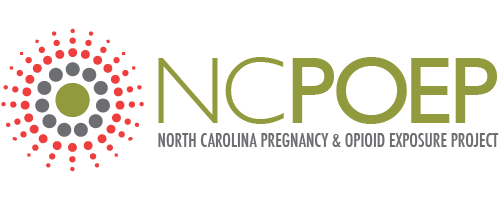 It is important to use a reliable birth control method to prevent an unintended pregnancy.
It is important to use a reliable birth control method to prevent an unintended pregnancy.
-
- There is a risk the infant will experience withdrawal from opioids when a woman takes opioids consistently during pregnancy. The infant withdrawal is temporary and treatable.[1]
- If a woman who is physically opioid-dependent decides she wants to become pregnant, it is important she work closely with her health care provider to develop a plan of care.[1] This may mean she continues taking prescribed opioid medication.
- When taking a prescribed opioid there is a risk of becoming physically dependent on opioids and developing an opioid use disorder. Being physically opioid dependent alone, without other symptoms, does not mean she has an Opioid Use Disorder.
- Women of childbearing age seeking treatment for pain may want to consider a range of options for pain management, both medication and non-medication.
- Treatment is available for women who are taking opioids illicitly, including heroin and/or prescription medication. Available resources vary by community. Women who are pregnant seeking substance use disorder treatment are a priority population for treatment programs, and there are several treatment programs in North Carolina specifically for pregnant women and women with young children.
- A statewide resource line for pregnant women, women of childbearing age, and providers is staffed by the NC Perinatal Substance Use Specialist: 1-800-688-4232.
Key Messages for Women Who are Taking Opioids and Become Pregnant
- If a woman who takes opioids by prescription or through medication-assisted therapy decides to become pregnant, she should work with her opioid prescriber to develop a plan.[6]
- It is important for a woman who takes opioids to obtain prenatal care as early as possible in pregnancy and to discuss her opioid use with her prenatal care provider.[1]
- Suddenly stopping opioids without medical supervision may increase the risk of pregnancy complications.[1]
- It is important to seek providers with expertise in opioid use during pregnancy and to develop an individualized treatment plan to optimize outcomes for mother and baby.[6]
- Some women may choose, in collaboration with their health care provider, to withdraw from prescribed opioids before becoming pregnant.[1]
- Women who are physically opioid-dependent should work with a provider to have an appropriate dose of prescribed opioids before, during and after pregnancy.[1]
- Some women, working closely with a trained provider, may consider a slow, medically monitored withdrawal of prescribed opioids during pregnancy.[1]
- Because of changes to a woman’s body during pregnancy, some women taking methadone or buprenorphine as part of opioid use disorder treatment may need to temporarily adjust the amount they are prescribed, based on the individual, to reduce onset of withdrawal or risk of relapse. Maintaining a therapeutic dose of either medication to avoid withdrawal is a positive step for a healthy pregnancy.[1]
- If a woman takes opioids while pregnant, the fetus will be exposed to opioids through the mother’s blood. The newborn may experience withdrawal symptoms in the days following birth. This is called neonatal abstinence syndrome (NAS) or neonatal opioid withdrawal syndrome (NOWS) specifically.[3]
- Neonatal opioid withdrawal syndrome is temporary and treatable with environmental approaches and if needed, medicine.[3]
- The risk of withdrawal and/or severity is greatly decreased when a woman who is pregnant cuts down or stops smoking or using tobacco and nicotine products.[5]
- Signs or symptoms of neonatal opioid withdrawal syndrome in a newborn can include: tremors, poor feeding, frequent yawning, and a continuous high-pitched cry.[3]
- At times a baby who was exposed to opioids during pregnancy will need to remain in the hospital longer than an infant who was not exposed to opioids, from a few days up to several weeks.[3]
- Hospitals have differing treatment plans to monitor for and manage neonatal opioid withdrawal syndrome (NOWS), some practicing Eat, Sleep and Console and ‘rooming-in’ as a first line approach and others using a traditional approach. Women are encouraged to seek information from the intended birth facility, ahead of labor and delivery.[3]
- Eat, Sleep, Console (ESC) is an approach of care for a newborn at risk for withdrawal that focuses first on non-pharmaceutical measures. The ESC approach promotes low stimulation environment, rooming in with the mother, feeding on demand and skin to skin contact.
- Breastfeeding is encouraged unless there are contraindications.
- It has been found that for many infants, the ESC approach effectively manages potential withdrawal symptoms and no other intervention is necessary.
- Seeking a hospital with a protocol for NOWS that includes use of the Eat Sleep Console approach for the infant is encouraged due to evidence of better outcomes based on fewer admissions to the neonatal intensive care unit, less medicine given to infant (if any) and shorter length of stay in hospital without readmission for the infant.[3] [4]
- Women who are opioid dependent should work with their health care provider to create an individualized pain management plan for labor and postpartum care.[1]
- Nubain and Stadol should not be taken by a pregnant or laboring woman taking opioids.[7]
- Breastfeeding is encouraged for women taking medication as a part of treatment for an opioid use disorder, unless there are medical reasons to avoid it or personal reasons not to. Medical reasons to avoid breastfeeding include HIV infection or specific medications for which breastfeeding are not safe.[1]
- Whenever possible, having the newborn room in with the mother while in the hospital is encouraged. Benefits include opportunity to initiate breastfeeding, bonding and decreased need for medical treatment of neonatal opioid withdrawal syndrome.[2] [3]
- Self-care is important for all pregnant women. When taking prescribed opioids is the best plan for the pregnancy, other positive steps such as quitting smoking, eating healthy and having regular prenatal care visits contribute to a positive birth outcome.



